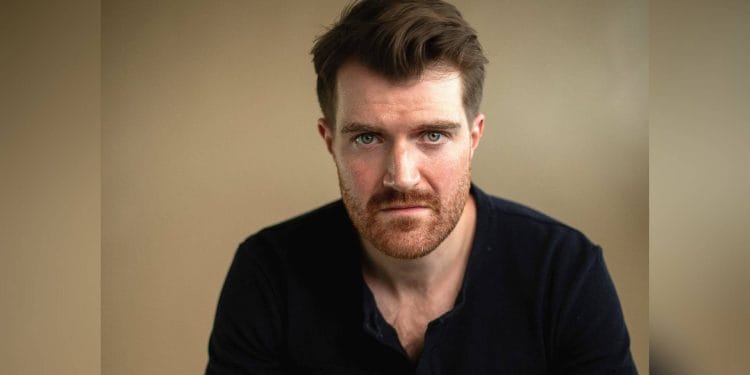Ciarán Owens stars in Jean-Philippe Daguerre’s Farewell Mister Haffmann, the English language world première of one of France’s most successful new plays.
Joining Ciarán Owens are Alexander Hanson, Lisa Dillon, Josefina Gabrielle and Nigel Lindsay. Translated by Jeremy Sams, and directed by Lindsay Posner, the production opens at the Ustinov in Bath Theatre Royal on 31 August, with previews from 24 August, and runs until 23 September.
The French play Adieu Monsieur Haffmann by Jean-Philippe Daguerre has been a commercial and critical success in France, winning four Molière Awards, including Best New Play. It has been one of the longest running plays in France and was recently made into a film starring Daniel Auteil.
You’re starring in Farewell Mister Haffmann, what can you tell us about this play?
It’s a totally brilliant and unique beast: a wartime thriller that’s one minute absurdly comic, the next heartbreakingly moving. Through the lens of Nazi-occupied Paris, it asks big questions of how humans respond under the most extreme circumstances imaginable; the questionable choices good people make to protect each other, the lengths and dangers we put ourselves through, physically and emotionally, for the people we love.
How did you feel when you read the script, and what made you so keen to take on the role?
It really was a proper page-turner. Without revealing major spoilers, there’s an extraordinary deal that’s struck at the top of the play between a married couple and their boss that’s so dramatically potent, and the tension just gets tauter as the evening progresses. The brilliant Lindsay Posner’s put together a uniformly stellar cast and creative team, all of whom I’m totally relishing the chance to work with.
The play has been a huge hit in France, how do you think British audiences will react to this English language adaptation?
It’s revelatory in its fresh perspective on a period we know so well, whilst also speaking directly to our times. I’ve learned lots about both the lives of ordinary French people living under Nazi rule and the French government’s horrific complicity in the Holocaust.
I’d previously thought about the heroism of the French Resistance being the defining social gesture of that era in France, but for the vast majority of people they were just focused on survival. The play puts the audience in these people’s shoes and the questions it asks are sadly more pertinent to a modern viewer than they may have been a decade ago.
But it wears its historical lessons lightly and really focuses on the micro-dynamics of three good people living under pressure-cooker conditions, and how these external forces can change how we see and interact with those we’re closest to.
You’re playing Pierre Vigneau, what can you tell us about the character and what excites you most about him?
He has a really thrilling arc I can’t wait to explore: he starts as a good person with idealistic intentions whose morals are tested by the need to stay alive and protect his family, taking him to the brink of dangerous radicalisation.
And what do you think will be the biggest challenge for you here as an actor?
Pierre is defiantly blinkered in the face of the most horrific political climate, and the play explores through him the way in which we can excuse or even facilitate fascism by quietly pursuing what’s best for ourselves and ignoring our neighbour’s misfortune. It asks how personal trauma or hardship can sometimes open the door to extreme political beliefs. What’s challenging here in the acting will be to make his sometimes repellent actions feel plausible from a character you continue to sympathise with.
But more challenging really is the fact I have to tap dance…
What would you say to anyone thinking of booking to see Farewell Mister Haffmann?
Sex, betrayal, love and loss are all at the heart of this brilliant play. It will make you squirm, laugh, maybe even cry, and it will definitely get you talking in the bar after the show.

















